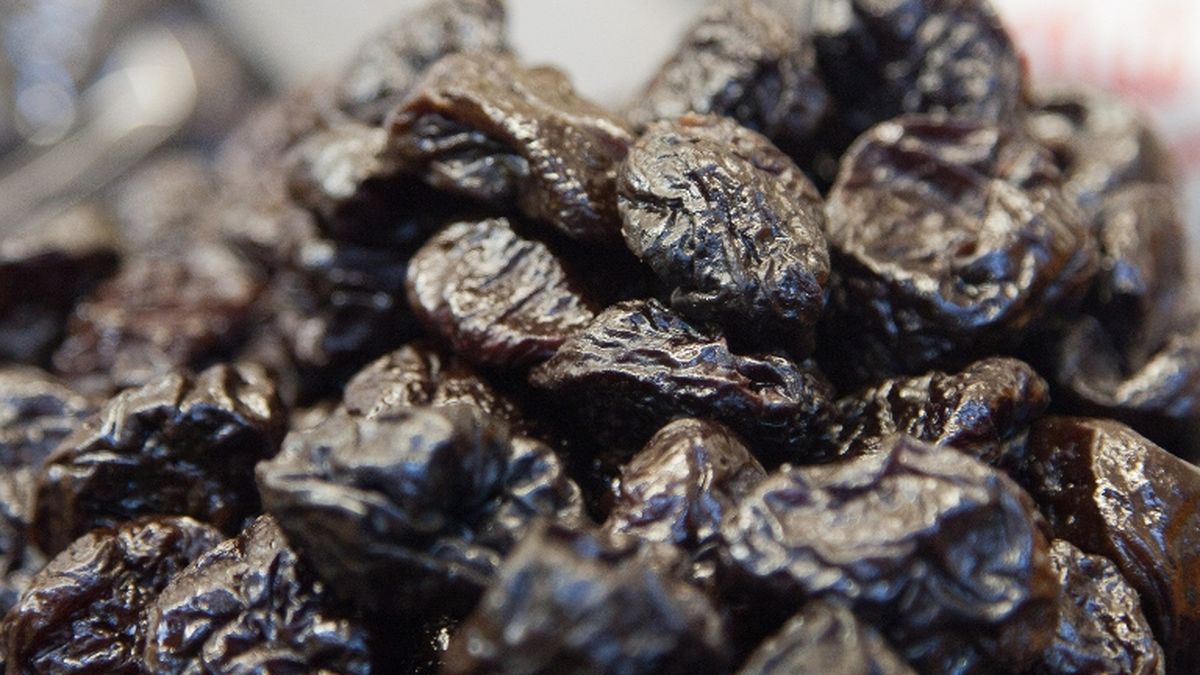 Prunes | ©david pacey / CC-BY
Prunes | ©david pacey / CC-BYWhat's this?
After the plum from Brignoles (Var), here's the prune (pruneau in French) from Agen.
A dry fruit men knew since the Antiquity for its medical and health virtues.
Very sweet, mellow and black, we can eat it plain, in savoury meals and of course in cakes or pies...
Since 2002, the prune from Agen has an I.G.P. (Indication Géographique protégée).
6 departements of Southern France produce it: Lot-et-Garonne of course, but also Dordogne, Gers...
The little history
For nothing!
The plum from Agen (or prune d'ente, ″graft plum″) comes from Syria, originally: thanks to... Crusaders!
They brought it back from Damas in 1148. It was a pretty 2nd disastrous crusade!
By the way, this crusade gave the French expression faire quelque chose pour des prunes, to do something for nothing, "for plums", literally.
Because the siege of Damas was a big fail, and Crusaders only brought back plum plants in France.
So they did the travel for nothing, "for plums"!
A prune for the starvation
In the area of Agen, monks from Clairac abbey (Lot-et-Garonne) were the first ones to cultivate plums, by grafting them to local varieties (that's why they gave the name prune d'ente, "graft plum").
They also discovered they could dry those fruits and get something sweet, flavoured and delicious...
They could preserve that fruit for a long time! Pretty handy in case of starvation...
From sergeants to Molière
In the 18th century, they called the prune "sergeant’s plum" or "sergeant’s dress": sergeants during the French Revolution wore clothes with a colour looking like a plum…
But as time flew, we get several plum varieties: the Reine-Claude, a tribute to king Louis XII's daughter, Monsieur's plum, a tribute to king Louis XIV's brother...
The famous French writer Mrs. de Sévigné was fond of those and Molière spoke about their laxative virtues in his play Le Malade Imaginaire, prescribing "little prunes to loosen the stomach, on evening..."
The fabrication
The plum picking happens at the end of summer.
They are displayed on racks to be dried in ovens for 24 hours.
Then, a bath in hot water, to be rehydrated. The pasteurization prevents prunes from rotting and we can preserve them longer...


